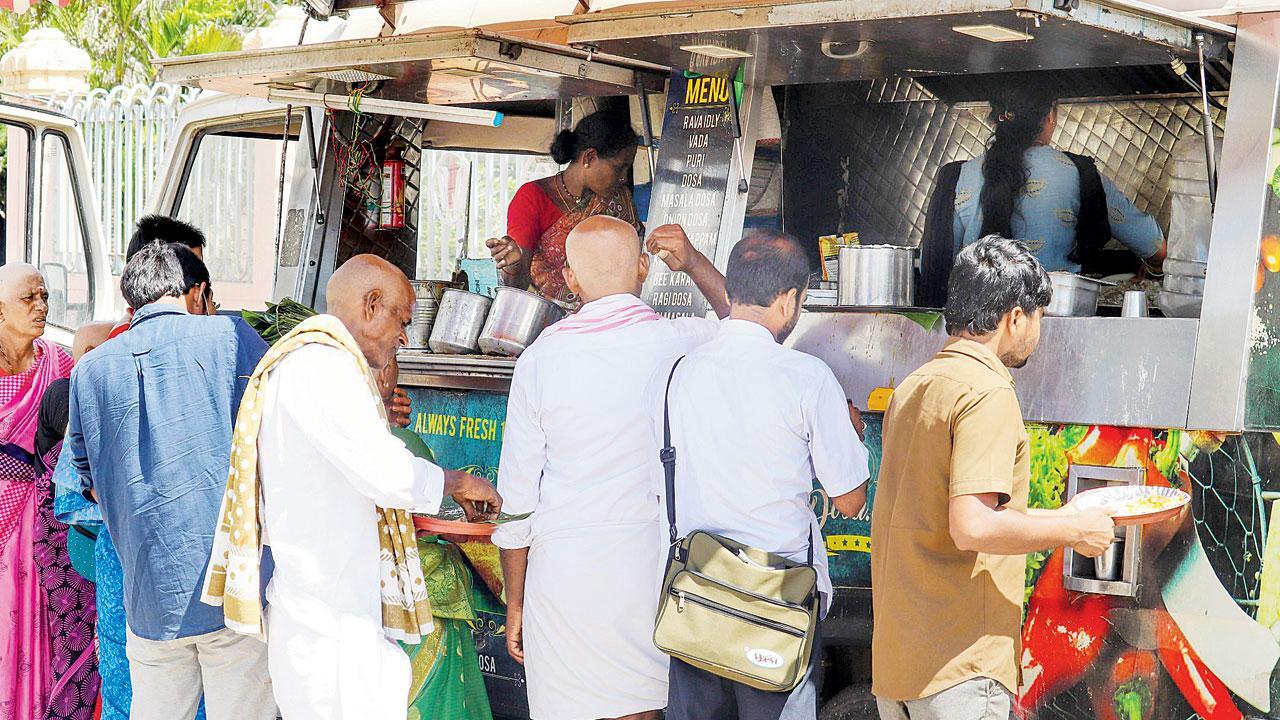BMC’s food truck policy is only awaiting the administrator and the additional municipal commissioner’s approval for implementation

This scene could be very familiar to Mumbaikars soon. Representation pic
The much-awaited food truck policy of the Brihanmumbai Municipal Corporation (BMC) will soon be implemented. It is awaiting final approval. In the first phase the BMC plans to allow 50 food trucks that will provide hygienic and good food to people.
ADVERTISEMENT
According to the draft of the policy, BMC will allow 7 food trucks in 6 zones of the city and 8 food trucks in zone number two which includes part of Haji Ali to Dharavi and Lalbaug-Parel to Sion. “In this zone, there are a large number of offices and shopping points,” said an official. These food trucks will have to follow set standards of hygiene and safety. The BMC will also train the food truck owners to maintain hygiene and safety.
In February 2022, BMC prepared a draft of the policy which was later kept on hold by the administration. “Recently the civic health department has approved the policy. Soon the policy will get final approval from the administrator and the additional municipal commissioner,” said an official. “We are in the final stage of policy preparation. Soon we will implement the policy,” said Additional Municipal Commissioner Dr Sanjeev Kumar.
Also Read: Mumbai: Western Railway to run 11 additional services from tomorrow
According to the policy, the staff of food trucks also have to be medically fit and maintain hygienic standards and proper uniforms. Also, the owner has to take NOC from the Traffic police, Mumbai Fire Brigade, and civic health department, and license from the civic authority. These licenses will be for 3 years.
BMC will appoint a zone-level committee to allot spaces to the food trucks. The Deputy Municipal Commissioner of each zone will head the committee, and representatives of the police, civic health department, and fire brigade will be part of the committee, as mentioned in the policy. “We will allot these trucks places near parks, picnic spots, and commercial establishments. In each zone, 50 per cent of the trucks will be reserved for women’s self-help groups, registered unemployed youths’ organisations and handicapped people,” the official added further.
 Subscribe today by clicking the link and stay updated with the latest news!" Click here!
Subscribe today by clicking the link and stay updated with the latest news!" Click here!







